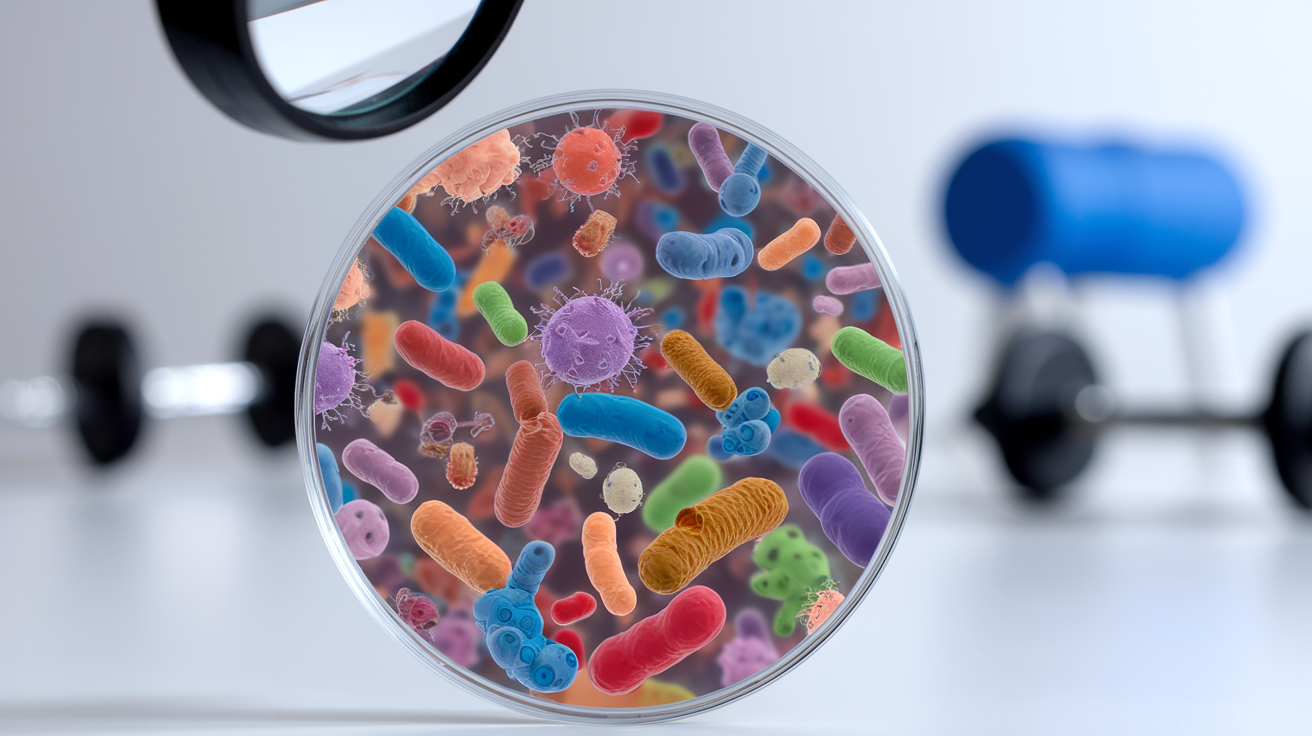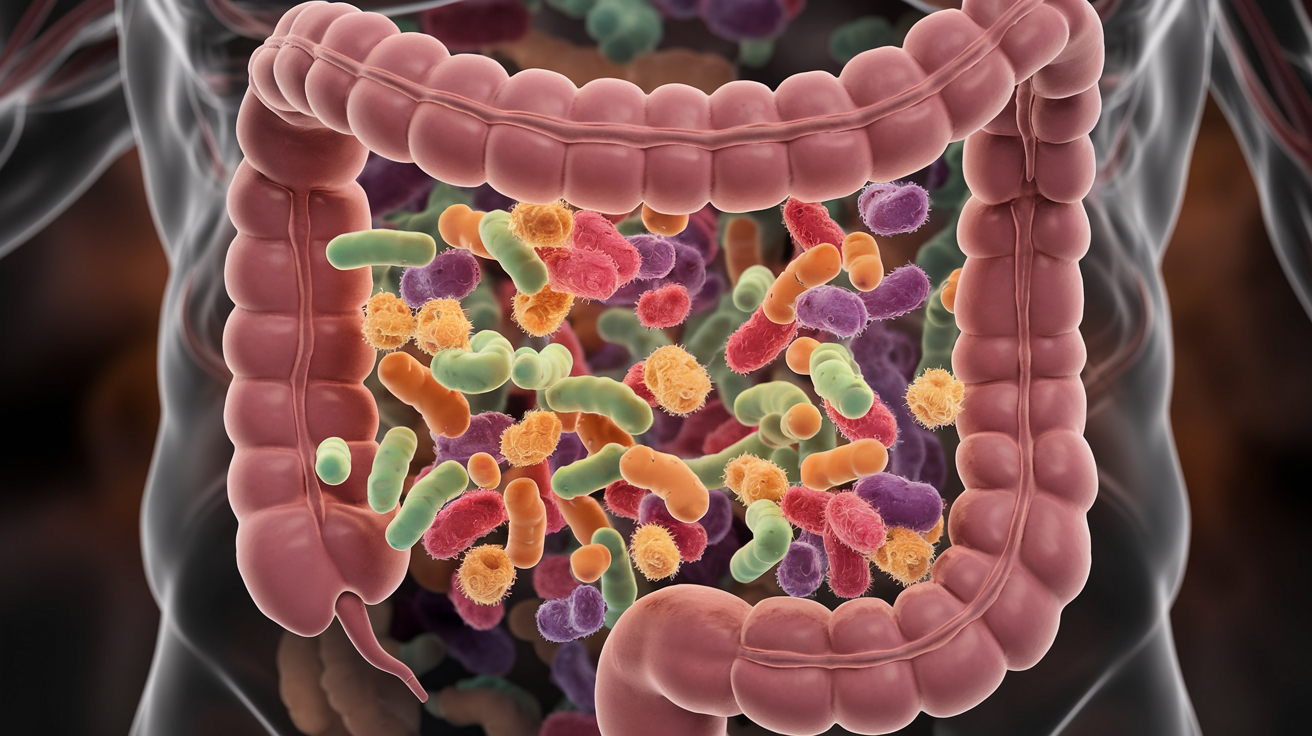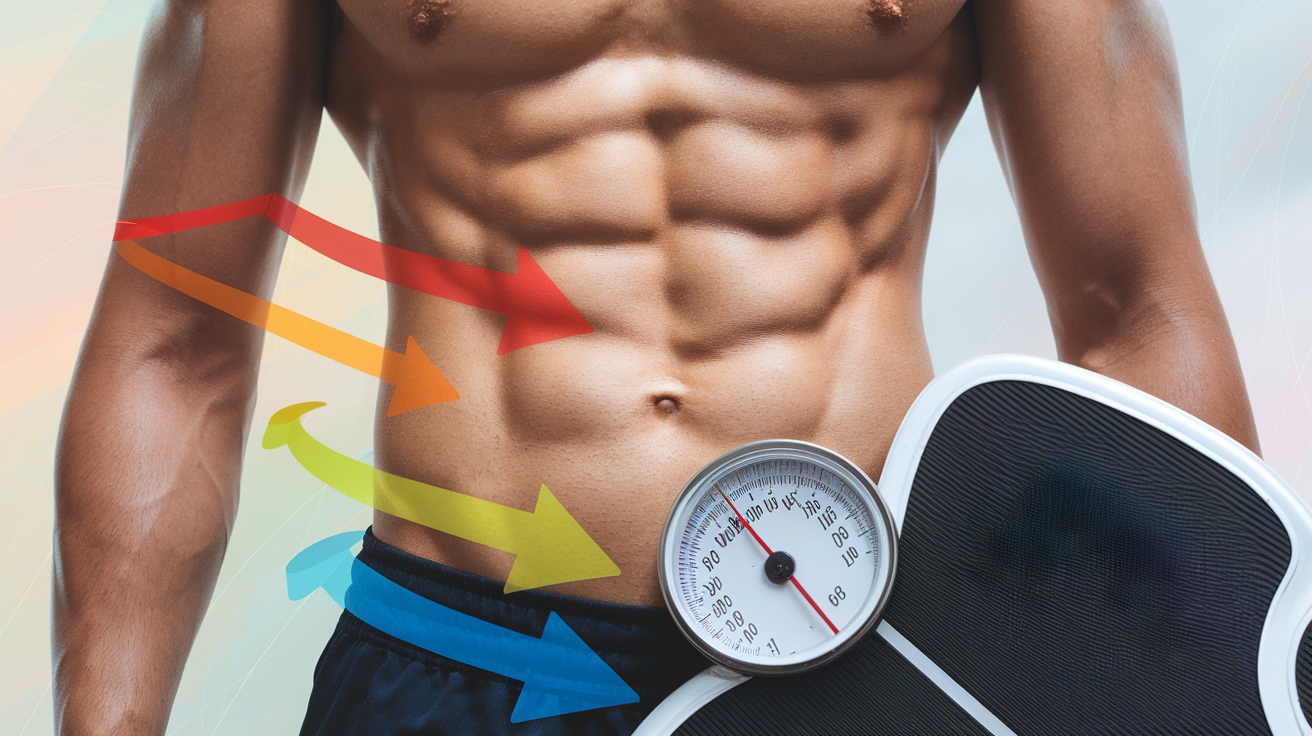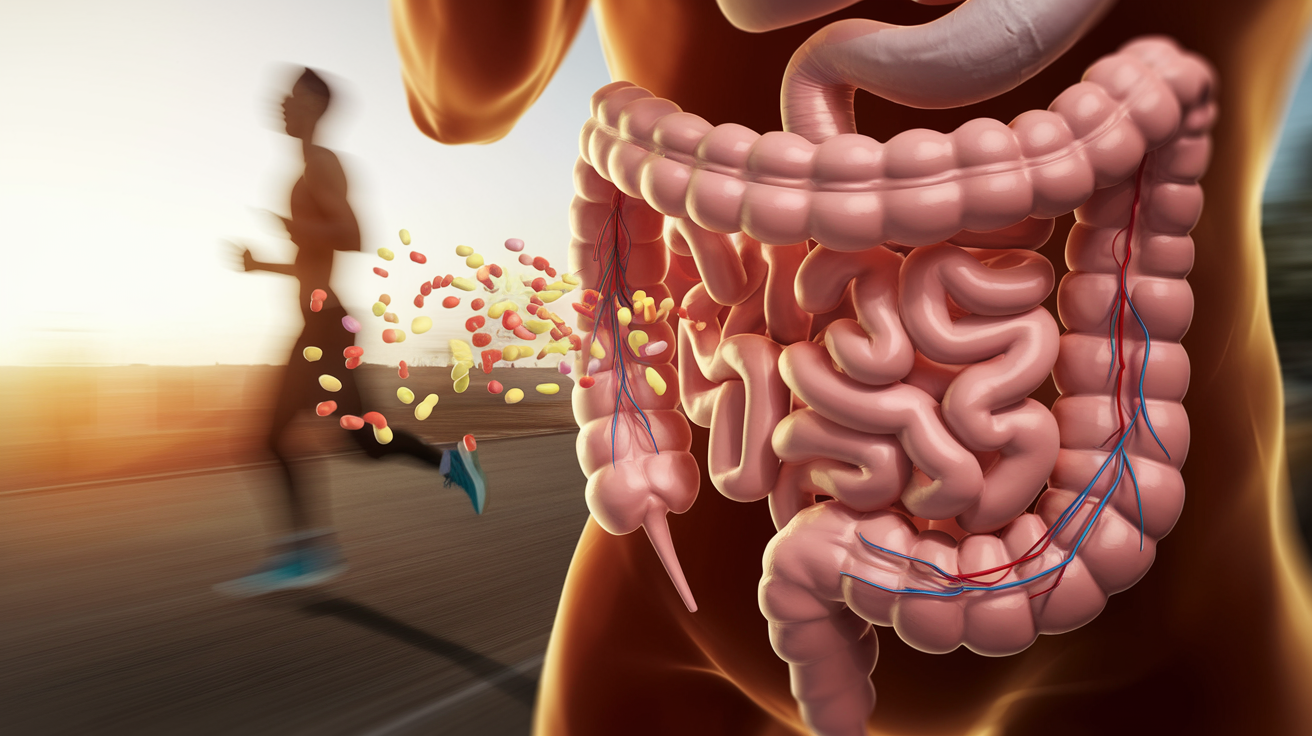Table of Contents
A SHORT AUDIO OF THE POST
Do you want to overcome the problems of bloating along with sluggishness and discomfort after eating? 🤔 Exercise may provide an easy solution for your gastrointestinal health problems. Working out goes beyond building biceps or creating Beach Body abs according to the correct definition. Exercise operates as an effective instrument to upgrade digestive system conditions from within. .
Get ready because this exploration will uncover how exercises connect to the condition of your gut health. Exercising shifts the microbiome diversity in your body while simultaneously reinforcing your intestinal barrier to lead significant changes to your digestive system. The advantages exceed the expected observations because exercise brings additional benefits to your health. 👀

Enhanced gut motility
Gut motility generates better movement of food within your digestive system and regular physical activity helps achieve this motion significantly. Physical exercise causes your intestinal muscles to activate thus improving digestive efficiency while also speeding up waste elimination. The increased muscle activity results in better bowel movement.
- Faster transit time of food through the digestive tract
- Reduced risk of constipation
- Improved overall digestive comfort
| Exercise Type | Impact on Gut Motility |
|---|---|
| Aerobic | Moderate to High |
| Strength | Low to Moderate |
| Yoga | High |
Reduced bloating and constipation
The practice of exercise helps people reduce both digestive problems that include feelings of bloat and difficulties with bowel movements. Here’s how exercise helps:
- Increases blood flow to the digestive organs
- Stimulates intestinal contractions
- Promotes regular bowel movements
- Exercise prevents the accumulation of gases within the intestinal tract.
Increased digestive enzyme production
Physical exercise helps our body make digestive enzymes more efficiently because these enzymes allow food to break down and nutrients to absorb. Regular exercise can:
- The stomach together with the pancreas experience increased digestive enzyme production.
- The digesting system within the small intestine becomes more efficient at absorbing nutrients
- Improved digestive system health creates less discomfort during eating sessions.
We need to understand how exercise modifies the diversity of gut microbiome after exploring its function-boosting effects on digestion.
Boosted Gut Microbiome Diversity

Increased beneficial bacteria
Exercise practices influence the bacterial composition inside the human gut in a significant way. Scientific research reveals that physical exercise encourages the increase of favorable gut bacteria groups including Bifidobacterium and Akkermansia. Several microorganisms present within our digestive system support different essential functions in the gut and both immune health and emotional stability.
| Beneficial Bacteria | Benefits |
|---|---|
| Bifidobacterium | Improves digestion, enhances immune function |
| Akkermansia | Supports metabolism, maintains gut barrier |
| Faecalibacterium | Produces anti-inflammatory compounds |
Reduced harmful bacteria
Physical activities enhance beneficial bacterial growth while controlling the development of dangerous microorganisms in the body. The modification of microbial balance results in these three factors:
- Decreased inflammation in the gut
- Lower risk of digestive disorders
- Improved overall gut health
Enhanced nutrient absorption
A diverse gut microbiome, fostered by regular physical activity, significantly improves nutrient absorption. This occurs through several mechanisms:
- Increased production of short-chain fatty acids
- Enhanced gut barrier function
- Improved gut motility
Body absorption rates of essential nutrients and vitamins and minerals increase because of these factors together. The body improves its ability to benefit from consumed nutrients which enhances both general health and wellness.
The gut microbiome function improves when healthy so people become more effective at handling stress and managing hormonal stability. The following section will analyze how physical exercise supports stress reduction along with its effects on gastrointestinal health.
Strengthened Gut Barrier

Reduced intestinal permeability
Exercise performs a vital function in developing stronger gut barriers through its ability to decrease members of the intestinal tissue called permeability which is called “leaky gut.” Physical activity maintains tight junctions between intestine cells to stop harmful substances from reaching bloodstream tissues. The importance of this mechanism stands vital for both gut germ maintenance and immune system efficiency.
| Exercise Type | Impact on Intestinal Permeability |
|---|---|
| Aerobic | Moderate reduction |
| Resistance | Significant reduction |
| High-Intensity | Temporary increase, long-term reduction |
Improved immune function
Having a stronger gut barrier is directly involved with an enhanced immune function. Exercise causes the release of antimicrobial proteins and good gut bacteria, which are key for the immune system. It also tended to improve immunity so it would help protect against everything from digestive issues to infection.
- Increased production of secretory IgA
- Enhanced activity of natural killer cells
- Improved balance of pro- and anti-inflammatory cytokines
Decreased inflammation
Exercise has a tremendous anti inflammatory effect on the gut. Physical activity reduces systemic inflammation and maintaining a healthy gut environment is achieved, and chronic digestive conditions are prevented. I also found regular workouts elevated the release of anti inflammatory compounds from muscles as myokines stemming from muscle tissue during exercise.
Once we understand how fitness helps with strengthening the gut barrier, we will look at how exercise aids in the reduction of stress and its benefits within the gastrointestinal tract as well.
Stress Reduction and Gut Health

Lower cortisol levels
Regular exercise helps stress reduction which also helps lower cortisol levels which very much has a bearing on gut health. Exactly, when we come to do any type of physical work, it releases endorphins, natural mood boosters that help us offset stress. There is a reduction of stress hormones and especially cortisol, which is beneficial to our digestive system.
| Cortisol Level | Effect on Gut Health |
|---|---|
| High | Increased inflammation, compromised gut barrier |
| Low | Reduced inflammation, improved gut function |
Improved gut-brain axis communication
Exercise improves ‘gut brain axis,’ which is the communication between the gut and the brain. The bidirectional relationship is essential for one to maintain overall health and well being. Physical activity is one of the ways to stimulate the vagus nerve, which plays a role in transmitting the signals in the gut to the brain.
- Increased vagal tone
- Enhanced neurotransmitter production
- Improved cognitive function
Reduced gastrointestinal symptoms
Common gastrointestinal symptoms are one of the conditions that regular physical activity can alleviate. Exercise is great for bowel movement being healthy, reducing bloating and curing constipation. On its own, it too helps in triggering appetite and improves overall digestive functions.
Incorporating fitness is also an excellent way to not only increase your level of physical health but your gut health as well. After having discussed how exercise reduces stress and improves gut health, it’s time to look at how fitness improves the metabolism and helps in maintaining a healthy weight, which in turn has a healthy gut.
Enhanced Metabolism and Weight Management

Increased metabolic rate
Physical activity is a great catalyst to increase your metabolism, and thereby aids in getting you closer to your goal gut health. Much like square root, you need to take the legs of a square and combine them to get the hypotenuse. And healthy exercise is how you go about improving your basic metabolic rate, which is the number of calories you burn at rest. Such a boost of metabolism is not only helpful in weight management, but it also ensures proper gut function.
| Metabolic Rate Changes | Sedentary Lifestyle | Active Lifestyle |
|---|---|---|
| Calories burned at rest | Lower | Higher |
| Gut motility | Decreased | Increased |
| Nutrient absorption | Less efficient | More efficient |
Improved insulin sensitivity
Gut health is very closely connected to exercise, which is a highly important way to improve our insulin sensitivity. This makes your muscles more responsive to insulin, which helps the glucose get taken up better. An improved insulin sensitivity will help to maintain levels of blood sugar and consequently reduce inflammation within the gut while supporting a healthy gut micro biome.
Better appetite regulation
It helps to regulate better appetite through the following:
- Containing hormone (ghrelin and leptin) balancers
- Reducing stress-induced eating
- Improving gut motility and digestion
Together, these factors do a good job of harmonizing your appetite with the actual needs of your body. Therefore, the chances are low that you will overeat or eat something that could harm your gut health.
Introducing exercise on a regular basis into your day is not only about helping your metabolism, boosting your weight management, it’s also the helping your environment to thrive the best possible gut function. The connection between fitness and gut health therefore shows that exercise is beneficial for overall health.
Improved Nutrient Delivery to the Gut

Enhanced blood flow to digestive organs
Blood flow to digestive organs is increased through regular exercise, which is why it plays an important role in increasing nutrient delivery to the gut. When you start physical activity, blood circulation becomes stronger and includes the gastrointestinal tract. An improved blood flow has a number of benefits including:
- Increased oxygen supply to gut tissues
- Enhanced nutrient transport to digestive organs
- Better removal of waste products
Here’s a comparison of blood flow to digestive organs during rest and exercise:
| State | Blood Flow (mL/min) |
|---|---|
| Rest | 1000-1200 |
| Exercise | 1500-2000 |
Better oxygen supply to gut tissues
Exercise increases blood flow and thus oxygen supply to gut tissues. This improved oxygenation:
- Supports optimal functioning of digestive enzymes
- Aids in improving the general health of guts cells.
- Promotes efficient nutrient absorption
Increased nutrient uptake
Additionally, this leads to improved blood flow as well as a better oxygen supply to the gut, thus making the gut better able to absorb nutrients. Bennett said this increased nutrient uptake has several benefits.
- Improved overall nutrition
- Enhanced energy levels
- Better support for gut microbiome
Your ability to bring about nutrient delivery to your gut is much enhanced from doing regular exercises so as to enhance your digestive health and maintain your general state of wellbeing. In the next section, we will then discuss the contribution of fitness to hormonal balance and its influence over the gut.
Hormonal Balance and Gut Function

Regulated gut hormone production
The production of gut hormones is regulated by physical activity. Exercise in fact causes release of hormones such as ghrelin, peptide YY, and glucagon-like peptide 1 (GLP 1) hormones that are crucial for proper gastrointestinal functioning. These hormones play a role in controlling appetite, digestion, and in general the gut function.
| Hormone | Function | Impact of Exercise |
|---|---|---|
| Ghrelin | Stimulates appetite | Decreases levels |
| Peptide YY | Reduces appetite | Increases levels |
| GLP-1 | Regulates blood sugar | Increases levels |
Improved gut motility
Physical activity increases the functional ability of your gastrointestinal system to move contents through the digestive tract. The muscles within the abdominal area become stronger through regular physical exercise while efficient peristalsis waves move intestines food products. Good gastrointestinal motility becomes faster after exercise thereby avoiding digestive problems and reducing constipation symptoms.
Enhanced appetite control
Exercise demonstrates its strongest impact on hormonal governance and gut operating through its mechanism of appetite regulation. Uncontrolled weight loss results from regulated hunger and satiety hormones when a person exercises.
- Reduced cravings for unhealthy foods
- Improved portion control
- Better recognition of hunger and fullness cues
- Increased sensitivity to leptin, the satiety hormone
Better blood sugar regulation
The practice of physical exercise stands essential for managing healthy blood sugar control that directly affects overall gut health. Exercise makes cells more responsive to insulin thus sugar becomes easier to use for metabolic processes. Multiple positive effects occur in gut function due to the regulation of blood sugar levels.
- Reduced inflammation in the gut
- Improved balance of gut bacteria
- Enhanced nutrient absorption
- Exercise leads to lower chances of diabetes onset and reduces your risk of metabolic disorders.
Your gut function alongside hormonal balance will benefit greatly from exercise activities you perform regularly which results in superior digestive health.
MY Zone
We often say, “I have a gut feeling,” without realizing the depth of that statement. The gut isn’t just a digestive organ — it’s a communication hub, a silent healer, a wellness messenger. A healthy gut impacts not only digestion but also immunity and mental clarity.
My wife once struggled with bloating and discomfort. She considered visiting a specialist, but I suggested something simpler first — drink more water, follow a disciplined diet, and stay active. Within six months, she felt completely different — lighter, healthier, and more energetic.
Your body talks. It sends signals, gentle and persistent. When you listen to it and respect its needs, it rewards you. Gut health is a powerful reminder that healing doesn’t always come in pills or prescriptions. Sometimes, it starts with small choices and consistent care.
Frequently Asked Questions (FAQs)
Q1. How does exercise improve digestion?
Physical exercise benefits digestion because it speeds up digestive tract movements yet it also improves blood circulation for digestive organs while triggering digestive enzymes and allowing beneficial microbial growth. The digestive system becomes more effective in food transit when exercising because it reduces both gas accumulation and problems with regular bowel movements.
Q2. Which exercise works best for improving gut health?
The recommended combination for gut health includes aerobic exercises including walking, jogging, cycling in addition to mindful movement activities like yoga. Exercising with both aerobic techniques and practicing yoga enables gut motility enhancement and stress reduction and strong gut-brain linking.
Q3 Can exercising help reduce bloating and constipation?
Active physical exercise proves highly effective at managing bloating together with preventing constipation. The physical activity activates intestinal muscle movements and generates digestive enzymes and produces normal bowel movements by supplying better blood flow to digestive tissues.
Q4. Does physical exercise actually change the microbial population contained within the human gut?
Exercise generates beneficial outcomes for gut microbiome health by increasing the presence of beneficial bacteria Bifidobacterium and Akkermansia among others. The microbiome becomes better at nutrient absorption while creating stronger gut barriers and reducing body inflammation and working better as an immune defense system.
Q5. What is the correct frequency of exercise required to obtain better gut health?
The combination of moderate-intensity aerobic exercises totaling 150 minutes per week alongside vigorous exercises for 75 minutes with strength training and flexibility exercises such as yoga provides the best outcomes for achieving optimal gut health.
Final Thoughts
Exercise provides more benefits than muscle development and weight loss because it serves as a potent instrument to enhance gut health. Exercise performs a vital function in gut health by improving digestive functioning and increasing the range of microbiomes in the body. The gut barrier gains strength through exercise and this reduction of digestive stress contributes to better digestion while metabolic functions also enhance. Exercise enhances both nutritional transportation to the intestine while maintaining hormone levels required for good gut function.
Your overall health benefits greatly from regular exercise because your gut serves as one of its major beneficiaries. You should establish an exercise schedule matching your life choices to build commitment. Your intestines together with your entire body system will benefit from this dietary change.
.




